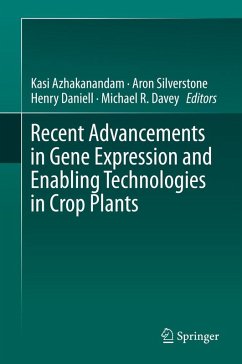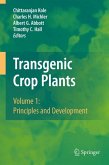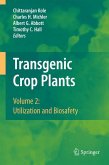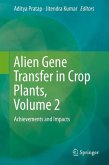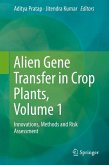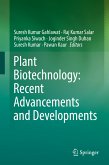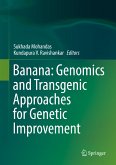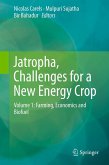In the past two decades, agricultural biotechnology has had a major impact on farming, with genetically modified (GM) crops grown on more than 175 million hectares globally. Although plant biotechnology has exploited model systems to gain fundamental knowledge, parallel research on field-grown plants has facilitated the development of GM crops that are used by consumers today. Biotechnology has also helped to create a rich pipeline of future products. This volume focuses on the innovations in both applied and basic research that are advancing our ability to deliver more complex multi-gene traits into plants. Although much of the work to date has been on corn and soybean, other areas of active transgenic development include rice, wheat, sorghum, sugarcane and vegetable crops. There is a progression from the use of constitutive promoters and single traits to gene stacking, the design of transgene cassettes to more resemble native genes, the subcellular location of recombinant proteins, and manipulating storage tissues to achieve optimal performance. Herbicide tolerance and insect control have been and will continue to be highly desired traits. The future holds promise for novel modes of action to overcome current limitations. Targets for engineered recombinant proteins go beyond agronomic traits and focus on industrial or pharmaceutical uses, yield and nutrition enhancement. Undoubtedly, future farming will advance from food/feed to industrial products, making crops more rewarding with value added traits. Soon, even more sophisticated tools, including precision insertion or editing of genes and building novel chromosomes, will increase our ability to overcome current barriers in gene expression technology and facilitate rapid regulatory approval. The use of transient expression systems for crop plants will facilitate rapid evaluation of transgenes in crop plants. This book highlights a wide range of current research tools and enabling technologies to improve crop plants, with special emphasis on next generation approaches for engineering complex traits and value added products that will revolutionize the future of agriculture to meet the ever increasing global demand for food, feed, fuel and industrial products.
Dieser Download kann aus rechtlichen Gründen nur mit Rechnungsadresse in A, B, BG, CY, CZ, D, DK, EW, E, FIN, F, GR, HR, H, IRL, I, LT, L, LR, M, NL, PL, P, R, S, SLO, SK ausgeliefert werden.

